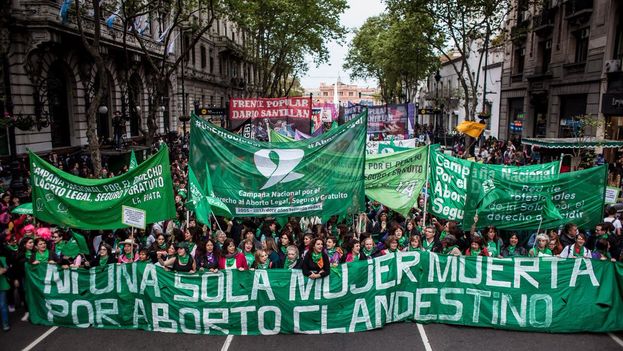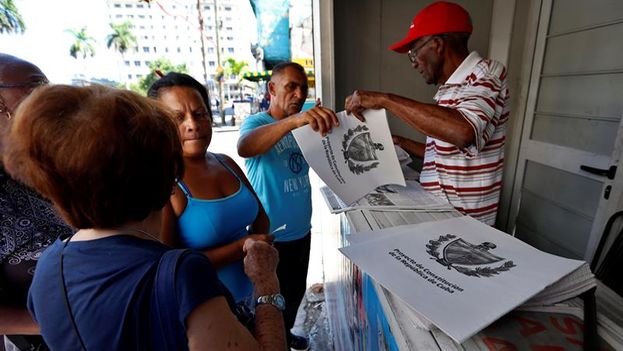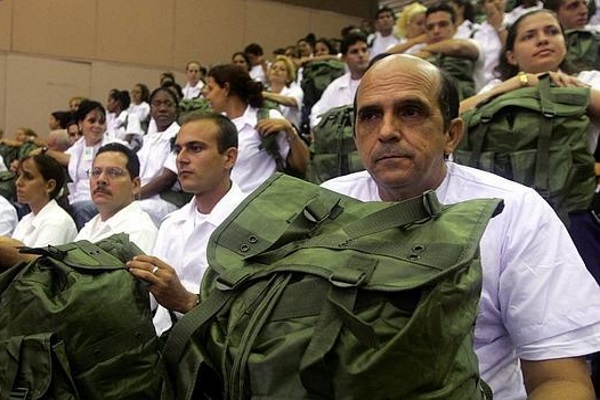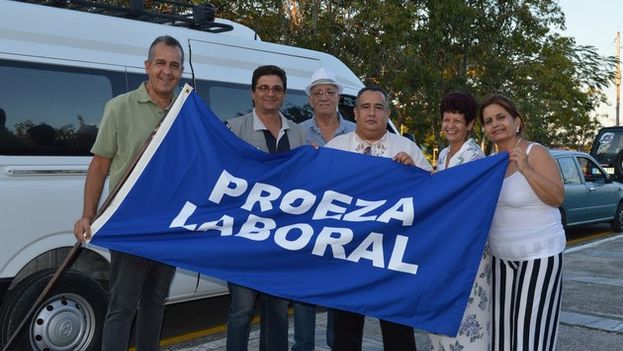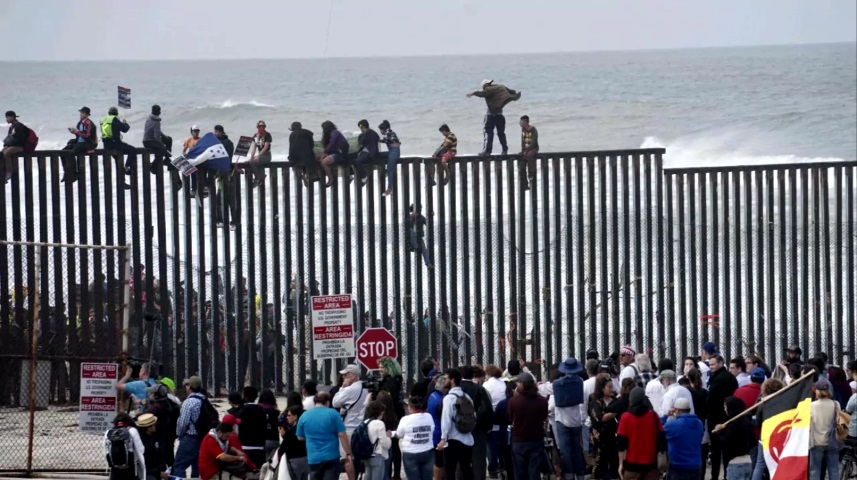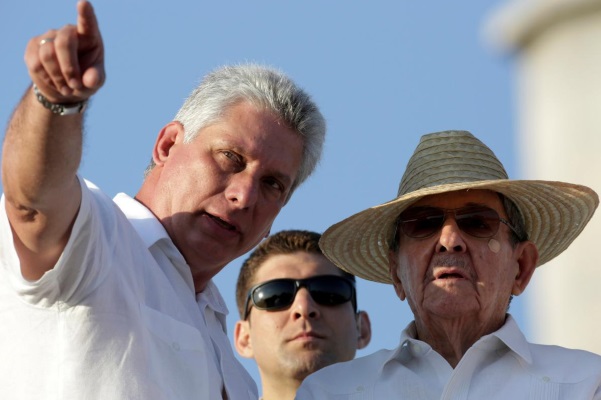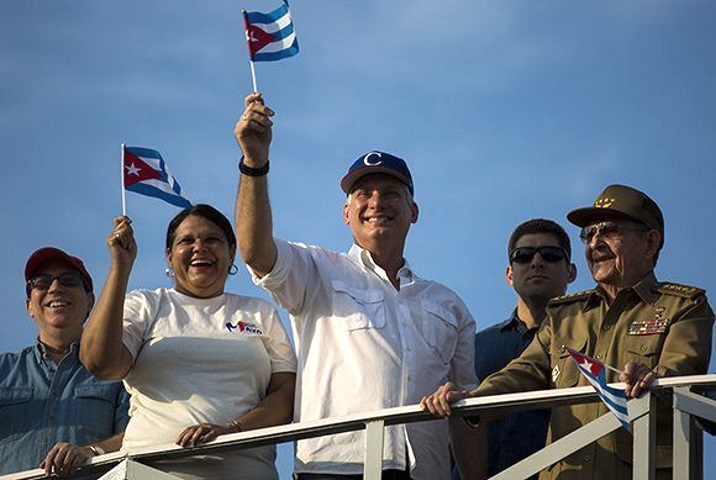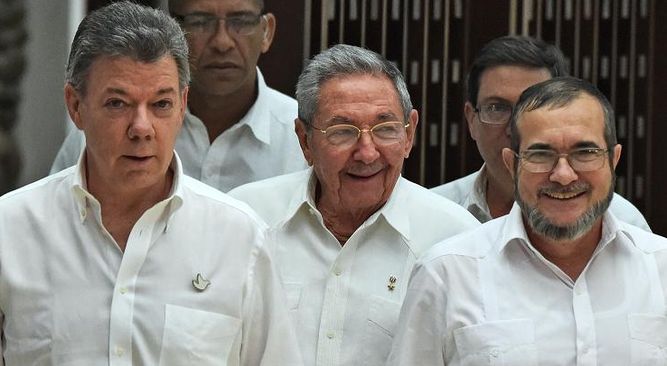
 Cubanet, Miriam Celaya, West Palm Beach, 16 August 2018 –With its lights and its shadows, the virtual debates surrounding the constitutional reform undertaken by the Cuban government have created the benefit of uncovering a host of non-conformities and claims long repressed by Cubans from all corners of the globe, and at the same time, stirring the polarization around the issue that operates as a turning point: to participate or not in that which, from the outset, is perceived as the leadership’s farce.
Cubanet, Miriam Celaya, West Palm Beach, 16 August 2018 –With its lights and its shadows, the virtual debates surrounding the constitutional reform undertaken by the Cuban government have created the benefit of uncovering a host of non-conformities and claims long repressed by Cubans from all corners of the globe, and at the same time, stirring the polarization around the issue that operates as a turning point: to participate or not in that which, from the outset, is perceived as the leadership’s farce.
So much reluctance is not by chance. Sixty years of scams by the dictatorial power has developed in Cubans a natural distrust of everything that flows from it. However, this has not been an impediment to breaking the silence. Demands are overflowing the virtual spaces of some websites and social networks, where they have been creating discussion groups on constitutional issues, and in which very interesting analyses and discussions are taking place.
However, the truth is that certain uprisings of civic rebellion are taking place in Cuba, either because of the uncertainties generated by a reform project clearly designed for the benefit and consecration of the top leadership or by the feeling of general frustration among a population that had pinned its hopes on improving its living conditions. The population also had its hopes pinned on true participation in the national economy and politics from the “transition” of power, from the hands of the historical generation to a new younger president, supposedly better linked to “the people.” They are not seeing such hopes expressed in the lapidary constitutional proposal that only reaffirms and prolongs the demise of citizen rights. continue reading
The motives may be apparently disconnected and disengaged from the strictly constitutional issues – such as Decree 349, which affects the artistic sector; marriage between LGTBI couples; the censorship of an art show or of one in a theatre scene; the arbitrary detention of a citizen; etc. – however, protests are focused on and related to the same basic problem: the boredom of a nation in which all individual rights have been violated for too long. The general feeling of malaise inside Cuba is palpable.
The trigger that would spark the delicate political and social balance could be both the enforcement of certain decrees and laws that further limit citizen rights and the arbitrary detention of an artist or a group, the censorship of a film or a play, the confiscation of the means of work of any business owner or independent professional, the shortages in the markets, the high prices of food, the eternal problems of transportation or any eventuality within the endless accumulation of setbacks and limitations that characterize the days of the common Cuban.
Authorities are aware of this. That’s the reason there has also been a rebound in the repression and surveillance against the “disaffected” sectors, that is, the dissidence, the opposition groups, the protest artists, the independent journalists and against any hint of demands, even within the “socialist” ranks themselves.
These demands are growing in their number and in their intensity, as reflected in the great variety and quantity of independent and “alternative” journalism that is currently taking place in Cuba despite the censors, and to the chagrin of the power elite, in hubs of disobedience of several young filmmakers; in the gradual but tangible process of loss of fear, especially among the younger intellectuals and artists sectors. It is the spirit of the generations that distance themselves from the “zombie effect” that still afflicts their parents and grandparents.
At the same time, this other sector of the dissatisfied is increasing. It is much larger and more dangerous, and is composed of the poorest individuals, those who depend on insufficient wages, who lack other means of making a living, a decent home; who see their children grow up among material shortages of all kinds and who, when the time comes, and in the absence of a leadership that will channel their demands peacefully, could become a violent and uncontrollable force, with unpredictable consequences and at an incalculable social and political cost.
And just as the rupture of the so-called “revolutionary social pact” between the un-government and dis-governed is becoming evident, also palpable is the leadership’s fear of things getting out of control if the usually meek flock turns into an ungovernable mass. The agents of the State (in)Security have threatened – not just by chance – a small group of popular artists after their arrest for protesting against an official decree, telling them that they would not allow another “Nicaragua” in Cuba. If there is something the Castro hound pack fears it is people without fear.
Without a doubt, “they will not allow it,” just as they are not allowing it in that Central American country where, according to witnesses, the repression is directed and monitored by Cuban troops. A “constancy” that has also been reported by numerous sources from Venezuela, where elite Castro troops have played an important role in the tenacious repression against the opponents of the dictator Nicolás Maduro.
Consequently, following the dictatorial logic, everything points to an eventual increase in the repression in Cuba, in direct proportion to the increase in citizen protest demonstrations or any spontaneous popular protest. Obviously, the so-called “debates” of the constitutional project that will only consecrate the rights of the power caste will also be jealously guarded by the agents of the political police, supported by the everlasting neighborhood snitches. The regime will try to keep everything on an even keel, but it knows that nothing is the same anymore. Especially when it does not even have the supreme resource: to release the pressure through a massive migratory wave.
Without the Mariel boatlift, without the “maleconazo“*, without fleets of rafters and without the land migrations toward the US borders of thousands of Cubans through South America, Central America and Mexico, the pressure stays in Cuba. It’s all about seeing who and how they will release it. If there is no economic reform and no real democratic transition in Cuba, this time there might be no winners
(Miriam Celaya, resident in Cuba, is visiting the United States)
*Translator’s Note: Uprising that took place in Havana August 1994, to protest government policies.
Translated by Norma Whiting

